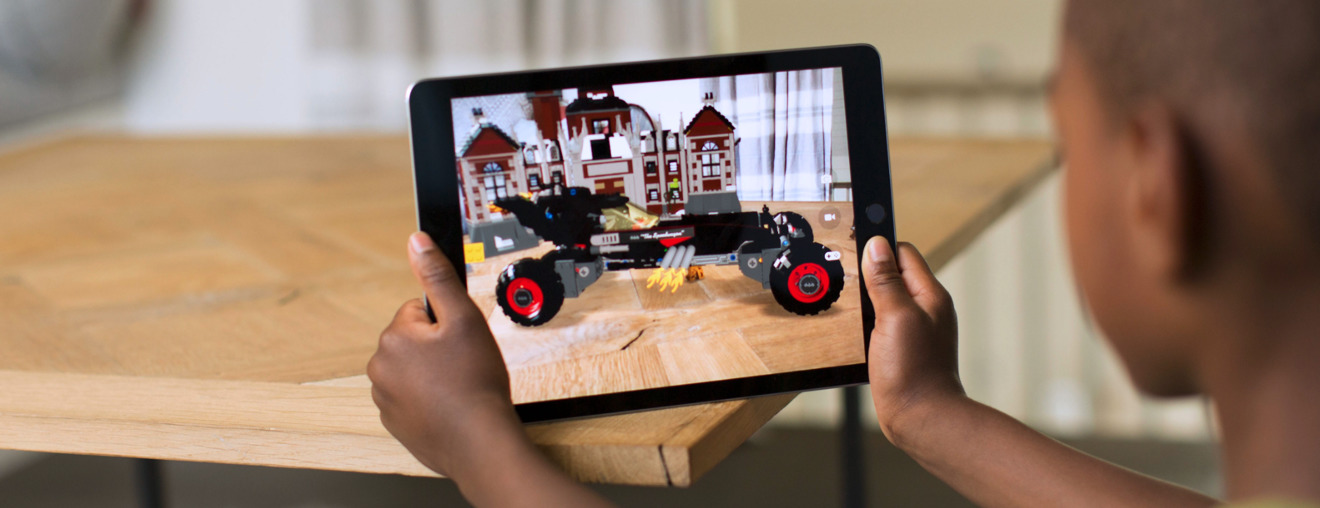A line has been drawn through the iOS 11-compatible devices in ARKit, with only hardware with the A9 or A10 family processors able to use the augmented reality software.
A statement in Apple's developer information specifies compatibility to the two processors, with little other amplifying information. Apple notes that the "breakthrough performance" in the two processors allow for "fast scene understanding" without breaking down why the A8 can't technically accomplish the same feat.
The cut-off for ARKit means that the iPhone 6s, iPhone SE, and iPhone 7 families can use the technology. For iPads, the situation is a bit more restrictive, with the 2017 iPad, and the iPad Pros the only compatible models.
The iOS 11 release as announced supports the iPhone 5s and newer, the iPad Air and newer, and the latest iPod Touch.
Apple Vice President Craig Federighi announced ARKit at Monday's WWDC keynote. The project contains a developer toolset that it will make available to nearly instantaneously make the iPhone and iPad the largest AR platform in the world, according to the company.
In a demonstration of software produced by the new ARKit, the software identified a table surface, and applied a virtual coffee cup properly scaled to the surface. Following a lamp's addition to the surface, the lighting model adjusted dynamically as Federighi moved the lamp around the cup.
 Mike Wuerthele
Mike Wuerthele








 Brian Patterson
Brian Patterson
 Charles Martin
Charles Martin


 Malcolm Owen
Malcolm Owen
 William Gallagher
William Gallagher
 Christine McKee
Christine McKee
 Marko Zivkovic
Marko Zivkovic









11 Comments
I wish they had included a demo app with the beta.
time to get the stragglers to give up their ipad 2's....
The hidden world of apples own fragmentation
This new feature and hardware limitation of older devices will help drive sales of new hardware. We can expect some cool AR demos when the next iPhone is unveiled.
The WWDC looks great for Apple's business. The Apple Payment Card means Apple will (like a bank) be holding onto and able invest a chunk of user money. The iPad became a far a more serious professional device, with a file system and other features. We now have iMacs with the power to run VR - a compelling reason for many to buy them, and even more powerful iMac Pros in the pipeline as well as the yet to be seen MacPro. Also a revitalized iOS App Store.
Analysts previously bemoaned Apple's lack of VR, supposedly non-pro iPad, lack of Amazon Echo type device etc. Apple has answered almost everything.
Apple have put a lot of work into building an opitmized foundation for AR and VR and it promises to pay off in terms of performance. Same with HomePod - rather than rushing to market, they worked "for years" perfecting an advancement in acoustics and audio processing to create a speaker worthy of an Apple product. HomePod is not competing directly against Amazon Echo because Echo sounds relatively poor, neither is HomePod competing directly against Sonos, because Sonos is not so smart - it is competing against both and neither - it stands alone - it is perfectly positioned - it's much more than a great speaker.
The ecosystem has got much stronger with this WWDC in a way that will reinforce iPhone sales and complement them with another great accesory in HomePod. There's still a wait for AirPods, with supply lagging behind damand and already Apple has shown us what's next.